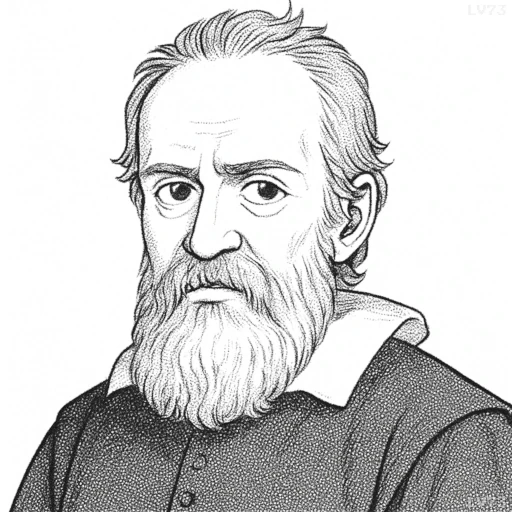“In questions of science, the authority of a thousand is not worth the humble reasoning of a single individual.”

- February 1564 – January 8, 1642
- From the Duchy of Florence (Italy)
- Physicist, astronomer, mathematician
table of contents
Quote
“In questions of science, the authority of a thousand is not worth the humble reasoning of a single individual.”
Explanation
In this quote, Galileo champions the power of individual reason over the weight of established authority in scientific matters. He asserts that when it comes to understanding the natural world, the logical reasoning of even a single person can outweigh the opinions or authority of many, particularly when those authorities are not grounded in empirical evidence or reasoned thought. Galileo himself faced intense opposition from both religious and academic authorities during his time, especially for advocating the heliocentric theory. Despite the overwhelming authority of the Church and established scholars, Galileo’s observations and reasoning led to discoveries that forever changed our understanding of the universe. He believed that scientific progress was not determined by consensus or authority, but by rational inquiry and evidence.
This quote remains highly relevant in modern scientific practice, where innovative ideas often emerge from the work of individual researchers challenging conventional wisdom. Many of the greatest breakthroughs in science—such as Darwin’s theory of evolution or Einstein’s theory of relativity—were initially met with skepticism or outright rejection by established authorities. Yet, these theories ultimately prevailed because they were grounded in reasoned argument and empirical evidence. Galileo’s words remind us that authority in science is not about the number of voices supporting an idea, but about the strength of the reasoning and the evidence behind it.
Furthermore, this statement underscores the value of critical thinking and intellectual independence in scientific discovery. Galileo’s approach encourages us to value the insights of individual thinkers who question the status quo and are not afraid to challenge prevailing ideas, as long as their conclusions are based on logical reasoning and experimental verification. In today’s world, where peer review and collaboration are fundamental to scientific progress, Galileo’s assertion is a reminder that science is not a democracy, but a pursuit of truth guided by reason, observation, and evidence.
Would you like to share your impressions or related stories about this quote in the comments section?

